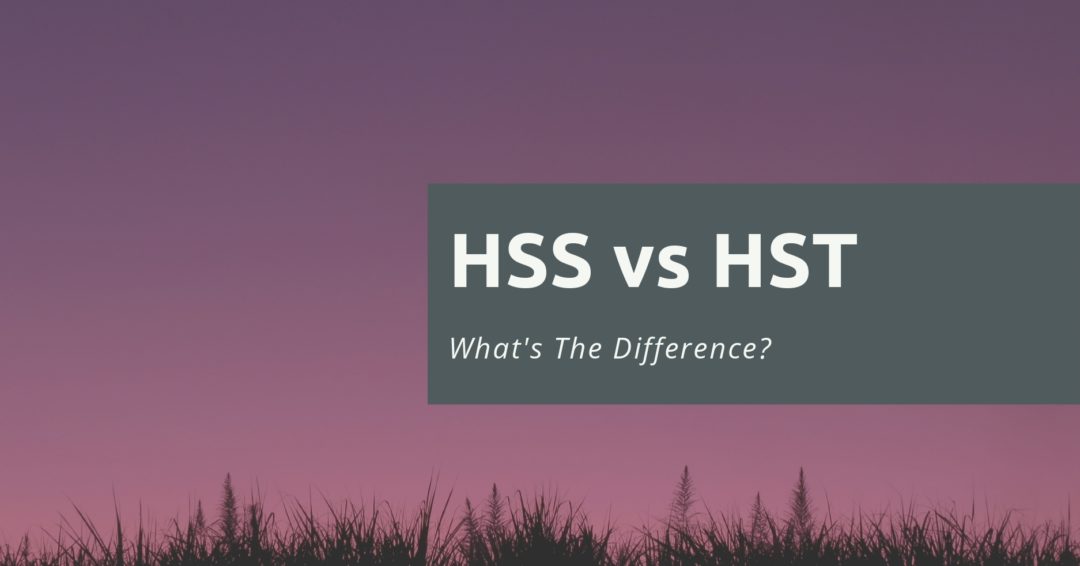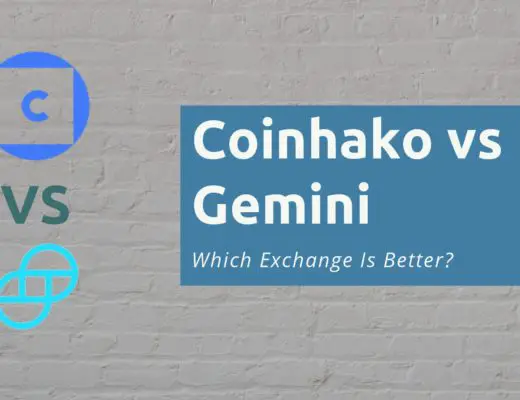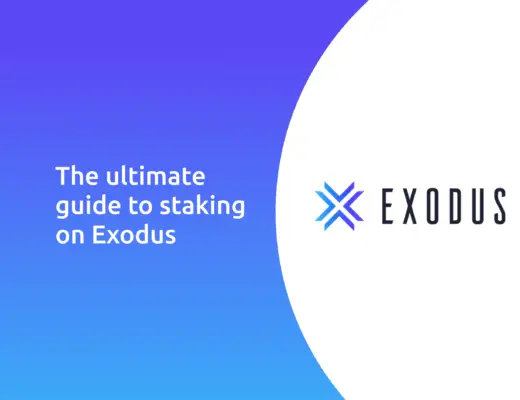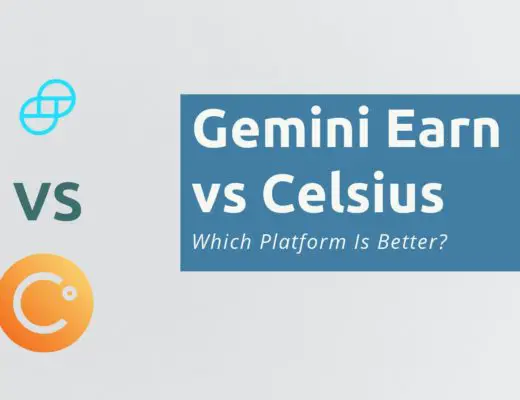Last updated on March 8th, 2022
You’ve decided to invest in the Hang Seng Tech ETF. However, there are two ETFs listed on the SGX!
Which one should you choose? Here’s what you need to know:
Contents
The difference between HSS and HST
Both HSS and HST are Hang Seng Tech ETFs managed by LionGlobal. They mainly differ in terms of their currency denomination (USD vs SGD) and their daily trading volume.
Here is an in-depth comparison between these 2 ETFs:
Fund manager
Both HSS and HST are managed by the same fund manager: LionGlobal.
These ETFs were listed on the SGX on December 2020, so they are rather new.
Index tracked
Both HSS and HST track the Hang Seng Tech Index.
This index represents the 30 largest technology companies listed in Hong Kong.
To be included in this index, companies have to:
- Have a high business exposure to technology themes
- Pass the index’s screening criteria
These companies all originate from Greater China, and they have to be listed on the Main Board of the HKEX.
They will also have to meet at least one of the 3 criteria below:
- Technology-enabled business (e.g. via internet / mobile platform)
- R&D Expense to Revenue Ratio ≥ 5%
- YoY Revenue Growth ≥ 10%
Here are some of the top holdings of this index:
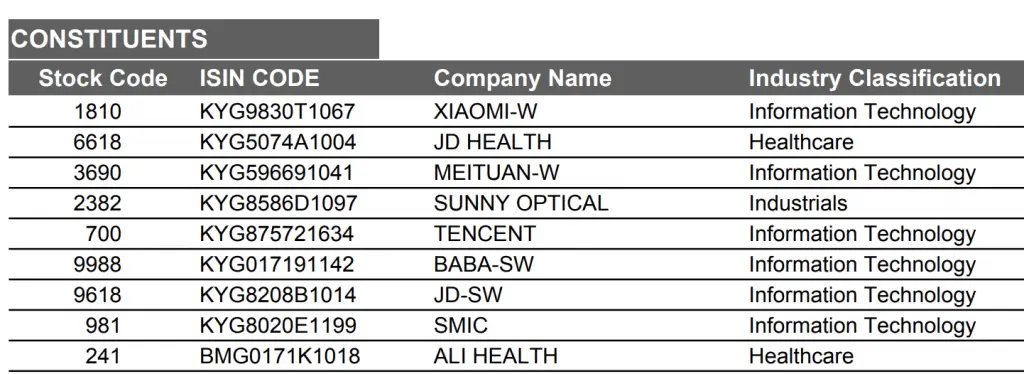
This index was also created very recently in July 2020.
Both ETFs would hold the same stocks in the same proportion. As such, their performance should be very similar.
Exchange listing
Both HST and HSS are listed on the SGX. Here are some of the similarities and differences due to this:
Different currencies for each fund
HSS is denominated in USD, while HST is denominated in SGD.
This does have some implications, which depends on your home currency. You are advised to purchase the ETF in your home currency (USD or SGD), because:
- You do not incur any currency conversion fees charged by the brokers
- You are not exposed to the fluctuating exchange rates between SGD and HKD
One thing you’ll need to take note of is that all of the ETFs’ assets are denominated in HKD. This means that the fund manager will still need to convert your USD or SGD to purchase the stocks in HKD.
However, the fund managers should get a more preferable exchange rate compared to you.
Same minimum number of units to invest
As such, they both require a minimum number of 10 units to purchase either ETF.
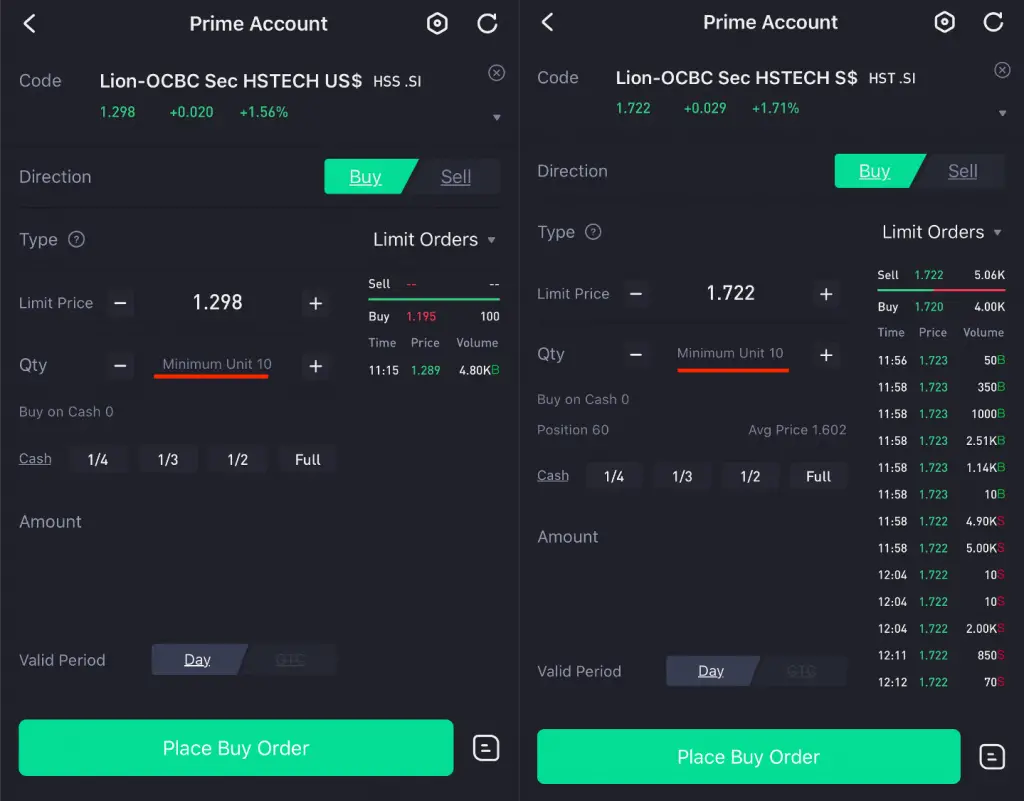
This is 10x lower than the minimum lot size of stocks listed on the SGX (100 units).
Both look rather accessible to start getting invested in this ETF. You roughly need about USD$12 or SGD$16 to buy 1 lot of either ETF!
However, you’ll need to consider the minimum commission the broker charges you. For example, OCBC Securities charges you a minimum of $25 for each trade you make on the SGX.
The amount you pay in fees will be even more than your actual investment amount!
Instead, you may want to consider Tiger Brokers which has no minimum commission for trades on the SGX until 30 April 2021.
Dividend distribution
According to the factsheets of both fund managers, they do not intend to distribute any dividends to you.
This is because most of the stocks in the index are tech stocks. They are aggressive growth stocks that would reinvest most of the profits into their company.
That way, these companies will continue to experience high amounts of growth!
Since the stocks themselves are not distributing dividends, the ETFs can’t distribute dividends to you either.
As such, you should not expect to receive any dividends when investing in this ETF!
Expense ratio
On top of the trading commissions you’ll need to pay the broker, you will have to pay an expense ratio to the fund manager as well.
The expense ratio is charged by the fund manager to cover the costs of running the fund.
Based on the value of your assets in the fund, you will be charged an annual fee.
Since both ETFs have the same fund manager, you will be charged the same expense ratio:
| HSS | HST | |
|---|---|---|
| Expense Ratio | 0.45% | 0.45% |
The expense ratio for both ETFs are capped at 0.68% p.a. for 2 years from the inception of the fund.
As such, the ETFs’ expense ratio won’t really affect your investing decision.
Average trading volume
If you are looking to actively trade using these ETFs, you may want to look at their liquidity. One of the indicators you may want to look at is the ETF’s trading volume.
Since both funds are rather new, Yahoo Finance does not have enough data to calculate the average trading volume.
| HSS | HST | |
|---|---|---|
| Trading Volume | 4,800 | 983,440 |
It is interesting to see that the USD denominated ETF has a much lower trading volume!
One way you can view an ETF’s volume per day is by looking at the volume bars in the stock chart.
There is a higher chance that you can buy or sell HST at your intended price compared to HSS.
Funds to Invest
If you are a Singaporean investor, you may be looking for ways to invest your SRS funds.
It is possible to invest in either HSS or HST using your SRS funds since it is listed on the SGX.
The Singapore Government does not have any restrictions on using your SRS to invest in ETFs on the SGX.

This gives you another option to grow your SRS funds!
You can use the OCBC BCIP to invest in HST too
The OCBC Blue Chip Investment Plan is a regular savings plan (RSP). This helps you to dollar cost average into this ETF every month.
With the launch of HST in late 2020, this ETF is included as one of the counters in the BCIP as well.
This is one additional way that you can invest in this ETF! However, OCBC does not give you the option to purchase HSS via the BCIP.
You’ll also need to determine if investing via a RSP or a broker is more cost effective for you.
Verdict
Here is a breakdown between HSS and HST:
| HSS | HST | |
|---|---|---|
| Index Tracked | Hang Seng Tech Index | Hang Seng Tech Index |
| Fund Manager | LionGlobal | LionGlobal |
| Exchange | SGX | SGX |
| Currency | USD | SGD |
| Minimum Units to Invest | 20 | 10 |
| Dividend Distribution | NA | NA |
| Expense Ratio | 0.45% | 0.45% |
| Trading Volume | 118,000 | 1.8 million |
| Ways to Invest | Cash SRS | Cash SRS OCBC BCIP |
So which ETF should you choose?
Choose HSS if your home currency is USD
The main advantage of HSS is if you wish to trade using USD.
However, it has a much lower trading volume compared to HST. You may not be able to buy or sell units of HSS at your intended price!
Choose HST if you are a Singaporean investor
If you are a Singaporean and are investing using SGD, HST is the better choice.
It has a much higher trading volume compared to HSS. Moreover, you are subject to less amounts of currency fluctuation compared to investing in HSS (USD) or 3067 (HKD).
As such, it seems to be the better option for you!
Conclusion
Both HSS and HST should have very similar performances since they track the same index.
Besides the difference in currency, there is not much difference between these 2 ETFs!
Both of these ETFs track the Hang Seng Tech Index, and not the Hang Seng Index. You can check out my guide on buying the Hang Seng Index from Singapore for more information.
If you’re looking for a way to track the markets and your portfolio, you can consider using TradingView, which allows you to monitor more than 50 stock exchanges.

Do you like the content on this blog?
To receive the latest updates from my blog and personal finance in general, you can follow me on my Telegram channels (Personal Finance or Crypto) and Facebook.
Are you passionate about personal finance and want to earn some flexible income?

